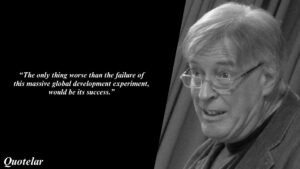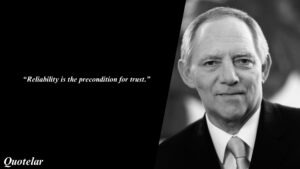
Ibn Hazm (994-1064 CE) was a versatile Andalusian scholar, born in Cordoba, Spain. Renowned for his work “Kitab al-Fisal,” he critically analyzed religions and sects, offering insights into their beliefs. A member of a scholarly family, Ibn Hazm’s influence extended to Islamic jurisprudence, notably with “Al-Muhalla,” a comprehensive legal compilation. Beyond theology and law, he contributed to poetry and history, leaving a lasting impact on Islamic thought. Ibn Hazm’s writings reflect the intellectual vibrancy of the Islamic Golden Age in al-Andalus, showcasing his deep knowledge and critical analysis across various disciplines. His legacy endures as a significant figure in medieval Islamic scholarship.
Ibn Hazm Quotes
1. “When you compare yourself with others in matters of wealth, position, and health, you should look at people less favored than yourself. When you compare yourself with others in matters of religion, knowledge, and virtue, look at people who are better than yourself.”
— Ibn Hazm
2. “Anyone who criticizes you cares about your friendship. Anyone who makes light of your faults cares nothing about you.”
— Ibn Hazm
3. “What indicates a person’s weak religion and fear of God, is that he seeks for an opinion that suits his desire.”
— Ibn Hazm
4. “Truthfulness is composed of justice and courage.”
— Ibn Hazm
5. “If you advise someone on the condition that they have to accept it, then you are an oppressor.”
— Ibn Hazm
6. “There are two things that if you do them you will attain the good of this world and the hereafter; [They are] that you bear what you dislike if it is beloved to Allah and you leave what you like if it is disliked by Allah.”
— Ibn Hazm
7. “Do not use your energy except for a cause more noble than yourself. Such a cause cannot be found except in Almighty God Himself: to preach the truth, to defend womanhood, to repel humiliation which your Creator has not imposed upon you, to help the oppressed. Anyone who uses his energy for the sake of the vanities of the world is like someone who exchanges gemstones for gravel. There is no nobility in anyone who lacks faith. The wise man knows that the only fitting price for his soul is a place in Paradise.”
— Ibn Hazm
8. “One hour of neglect can undo a year of pious effort.”
— Ibn Hazm
9. “Glad-tidings to he who knows his own faults more than other people know it.”
— Ibn Hazm
10. “If your pride leads you to boast,
you will be doubly guilty,
because your intelligence will have shown
that it is incapable of controlling your pride.”
— Ibn Hazm
11. “When we contemplate the duration of the universe, we see it limited to the present moment, which is nothing more but the point which separates two infinities of time. The past and the future are as meaningless as if they did not exist. Is anyone more misguided than the man who barters an eternal future for a moment that passes quicker than the blink of an eye?.”
— Ibn Hazm
12. “Knowledge no longer exists if one has ignored the attributes of the Almighty Great Creator.”
— Ibn Hazm
13. “The wise man knows the only fitting price for his soul is a place in Paradise.”
— Ibn Hazm
14. “Anyone who rises above the things of this world, to which you kneel, is mightier than you.”
— Ibn Hazm
15. “Of Love–may God exalt you! -the first part is jesting, and the last part is right earnestness. So majestic are its diverse aspects, they are too subtle to be described; their reality can only be apprehended by personal experience. Love is neither disapproved by Religion, nor prohibited by the Law; for every heart is in God’s hands.”
— Ibn Hazm
16. “If you are proud of your descent from virtuous ancestors, how empty their virtue will leave your hands if you yourself are not virtuous. How little pride your ancestors will have in you in this world and the next if you do no good! All men are children of Adam whom Allah created by His own Hands, giving him paradise for a dwelling place and letting His angels bow down before him. But how little is the advantage from this since all the vices dwell in mankind and all the wicked impious people are among their number.”
— Ibn Hazm
17. “Two kinds of people live a life without care: one kind are extremely worthy of praise, the other kind are extremely worthy of criticism. The first are those who care nothing for the pleasures of the world and the second (i.e. those who are deserving of criticism) care nothing for haya or modesty.”
— Ibn Hazm
18. “If there is someone in need whom you wish to help, whether the initiative came from him or from you, do no more than he expects of you, not what you might personally wish to do. If you overstep the mark, you will not deserve thanks, but blame from him and others and you will attract hostility, not friendship.”
— Ibn Hazm
19. “No one is moved to act, or resolves to speak a single word, who does not hope by means of this action or word to release anxiety from his spirit.”
— Ibn Hazm
20. “We should think of those who were famous for their good deeds or their bad deeds; did their fame raise them one single degree in the sight of Allah? Did it win them a reward that they had not already won by their actions during their life?”
— Ibn Hazm
21. “And though the years before I die
Stretch out interminably, I
Shall only count my life in truth
As that brief hour of happy youth.”
— Ibn Hazm


